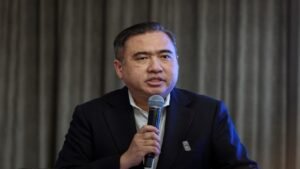Malaysia’s Economic Growth to Remain Robust into Q4
GDP forecast for Malaysia at 5.0 percent for 2024, which aligns closely with the government’s projection of 4.0 to 5.0 percent.

KUALA LUMPUR: Malaysia is set to continue its strong economic growth into the fourth quarter of 2024, supported by both external and internal factors following a remarkable GDP growth of 5.1 percent in the first half of the year.
Chin Yee Sian, an economist at RHB Investment Bank Bhd, stated that various drivers will support Malaysia’s growth trajectory in the remaining months of 2024. She highlighted that trade and manufacturing sectors are expected to see accelerated activity, along with a steady increase in domestic demand characterized by rising consumer and investment spending.
“Our optimistic outlook is reinforced by recent developments, including strong trade figures and industrial production metrics, as well as favorable outcomes from ongoing investment activities tied to long-term infrastructure projects and pro-business policies,” she mentioned in her research report.
RHB Research has retained its GDP forecast for Malaysia at 5.0 percent for 2024, which aligns closely with the government’s projection of 4.0 to 5.0 percent.
From a domestic perspective, Chin expressed confidence in the growth of private consumption, bolstered by favorable labor market conditions. She noted that the ongoing increase in consumer expenditure and the resurgence of tourism activities will significantly boost the service sectors, particularly retail trade, accommodation, and communications.
“Moreover, investment spending is expected to remain robust, driven by government policies that favor businesses and the implementation of initiatives outlined in national master plans,” she added.
Chin also emphasized that Malaysia’s trade performance is projected to stay resilient, supported by optimistic economic growth in major markets and a global technological upcycle.
However, despite the positive outlook, Chin acknowledged certain challenges, such as potential declines in consumer spending due to lower disposable incomes from subsidy realignment, alterations in social assistance programs, and increases in the services tax.
She cautioned that trade performance could be slower than anticipated if protectionist policies emerge from the United States, particularly in light of ongoing issues in the real estate sector in China.
Regarding inflation, Chin indicated that the headline inflation rate may stabilize within the range of 2.0 to 2.3 percent for the remainder of the year, assuming any adjustments to RON95 fuel prices are deferred until December 2024 at the earliest.
“Inflationary pressures remain manageable following diesel price adjustments in Peninsular Malaysia and modifications to the services tax, leading to a 1.8 percent increase in headline inflation over the first eight months,” she noted.
Looking forward, the trajectory of inflation will largely depend on the timing and scale of RON95 subsidy reforms, demand-pull factors stemming from Malaysia’s robust growth figures, and fluctuations in global commodity and food prices.
Chin also mentioned that the overnight policy rate is likely to remain steady at 3.0 percent due to manageable inflation levels and stable economic prospects.
Additionally, she confirmed that the fiscal deficit projection stands at 4.3 percent of GDP for this year, with a potential target of 3.5 percent for the following year.
“The recent introduction of a diesel price float in Peninsular Malaysia will complement existing fiscal consolidation strategies, including the revision of the services tax and utilities tariffs, which are expected to improve the fiscal outlook compared to 2023,” she highlighted.
Chin anticipates that the upcoming Budget 2025 announcement will seek a balance between fiscal sustainability and economic growth initiatives. She looks forward to further clarifications regarding the RON95 fuel subsidy restructuring, the High-Value Goods Tax, the Progressive Wage System, and new remuneration schemes for civil servants.
Moreover, the government may explore broadening the range of taxable goods and services under the current sales and services tax (SST) framework to enhance revenue from consumption taxes.








